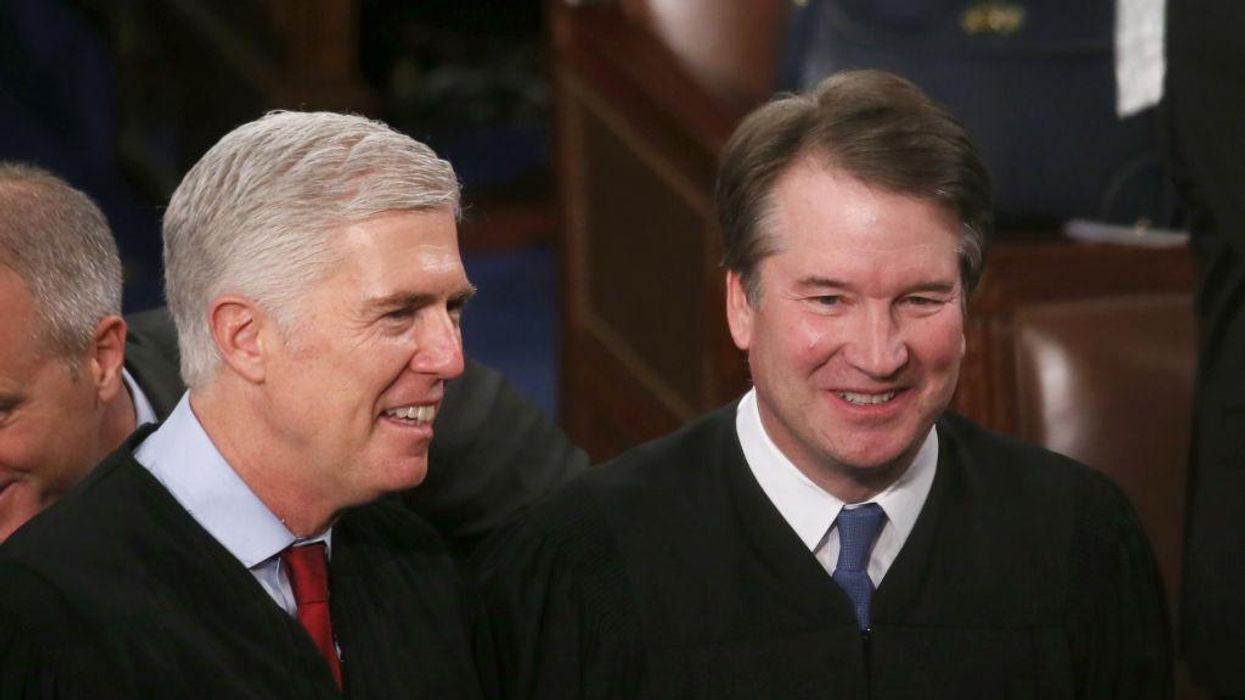
Mario Tama/Getty Images

In an unanimous decision handed down Monday, the Supreme Court ruled that the NCAA is violating U.S. antitrust law by restricting the benefits colleges can make available to student athletes.
Justice Neil Gorsuch delivered the court's opinion, which said the NCAA unlawfully harmed college athletes by limiting schools from competing for top talent by offering education-related benefits — like school supplies or paid internships. Gorsuch wrote that the NCAA sought "immunity from the normal operation of the antitrust laws," which the court refused to give.
The decision does not immediately open the doors for paid compensation for college athletes, as that issue was not before the court. Instead, it will permit schools to offer a wide range of educational benefits including tutoring, study abroad programs, and graduate scholarships, according to the Associated Press.
Current NCAA rules stipulate that student athletes cannot be paid and cap the scholarship money schools can offer at the cost of attending the school. The NCAA claims these rules are necessary because college athletes do not play at a professional level, and compensating them financially would detract from the amateur nature of collegiate sports.
But several former athletes who sued the NCAA, including former West Virginia football player Shawne Alston, disagreed. They argued in their lawsuit that the NCAA's rules on education-related compensation were unlawful and unfair, and the Supreme Court agreed with their argument.
In a concurring opinion that will turn heads, Justice Brett Kavanaugh signaled that he at least is willing to go further and declare the NCAA's refusal to allow college athletes to be paid a violation of antitrust law.
"The NCAA has long restricted the compensation and benefits that student athletes may receive," Justice Kavanaugh wrote. "And with surprising success, the NCAA has long shielded its compensation rules from ordinary antitrust scrutiny. Today, however, the Court holds that the NCAA has violated the antitrust laws. The Court's decision marks an important and overdue course correction, and I join the Court's excellent opinion in full."
Continuing, the justice said that "the NCAA's remaining compensation rules also raise serious questions under the antitrust laws."
"The NCAA couches its arguments for not paying student athletes in innocuous labels," he wrote. "But the labels cannot disguise the reality: The NCAA's business model would be flatly illegal in almost any other industry in America. All of the restaurants in a region cannot come together to cut cooks' wages on the theory that 'customers prefer' to eat food from low-paid cooks. Law firms cannot conspire to cabin lawyers' salaries in the name of providing legal services out of a 'love of the law.' Hospitals cannot agree to cap nurses' income in order to create a 'purer' form of helping the sick. News organizations cannot join forces to curtail pay to reporters to preserve a 'tradition' of public-minded journalism. Movie studios cannot collude to slash benefits to camera crews to kindle a 'spirit of amateurism' in Hollywood."
He went on to accuse the NCAA of "price-fixing labor," which he called a "textbook antitrust problem."
"The bottom line is that the NCAA and its member colleges are suppressing the pay of student athletes who collectively generate billions of dollars in revenues for colleges every year. Those enormous sums of money flow to seemingly everyone except the student athletes. College presidents, athletic directors, coaches, conference commissioners, and NCAA executives take in six- and seven-figure salaries. Colleges build lavish new facilities. But the student athletes who generate the revenues, many of whom are African American and from lower-income backgrounds, end up with little or nothing," he charged.
Kavanaugh torched the NCAA's justifications for refusing to let student athletes be paid based on the tradition of amateur sports.
"Those traditions alone cannot justify the NCAA's decision to build a massive money-raising enterprise on the backs of student athletes who are not fairly compensated," he wrote. "Nowhere else in America can businesses get away with agreeing not to pay their workers a fair market rate on the theory that their product is defined by not paying their workers a fair market rate. And under ordinary principles of antitrust law, it is not evident why college sports should be any different. The NCAA is not above the law."